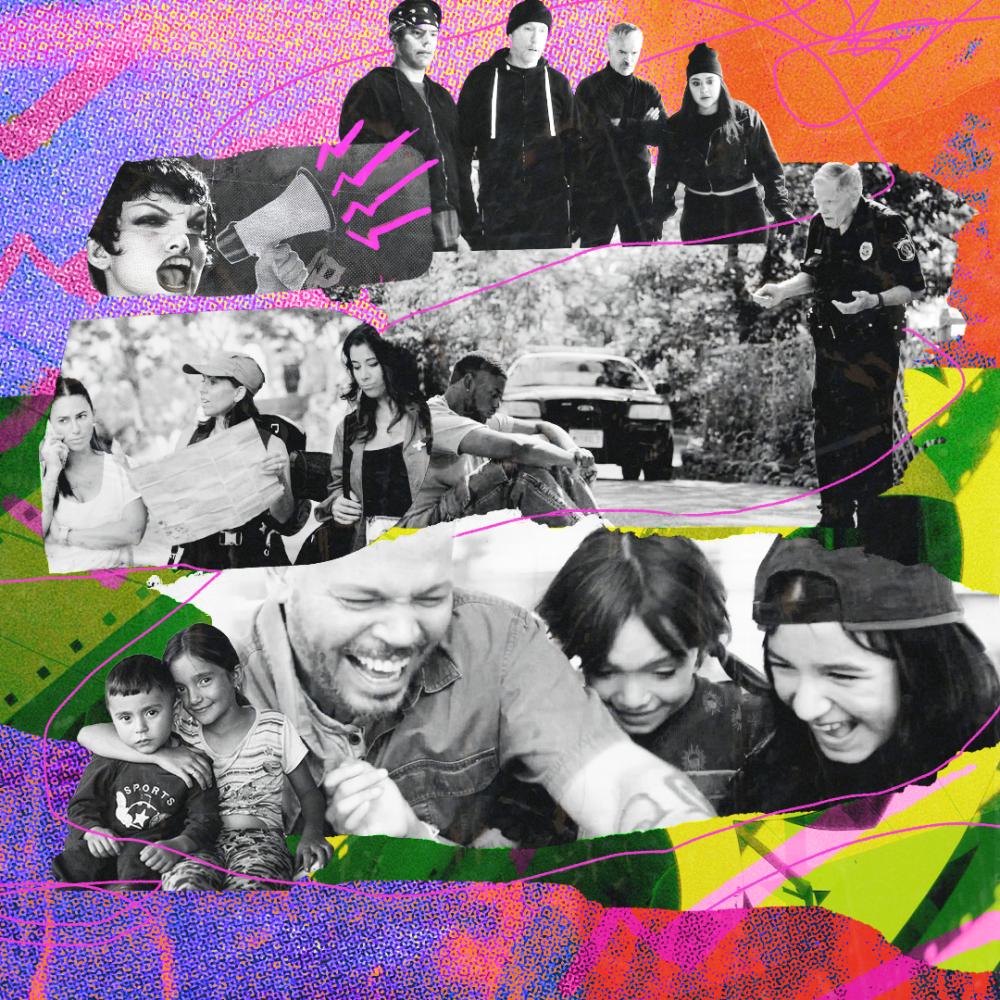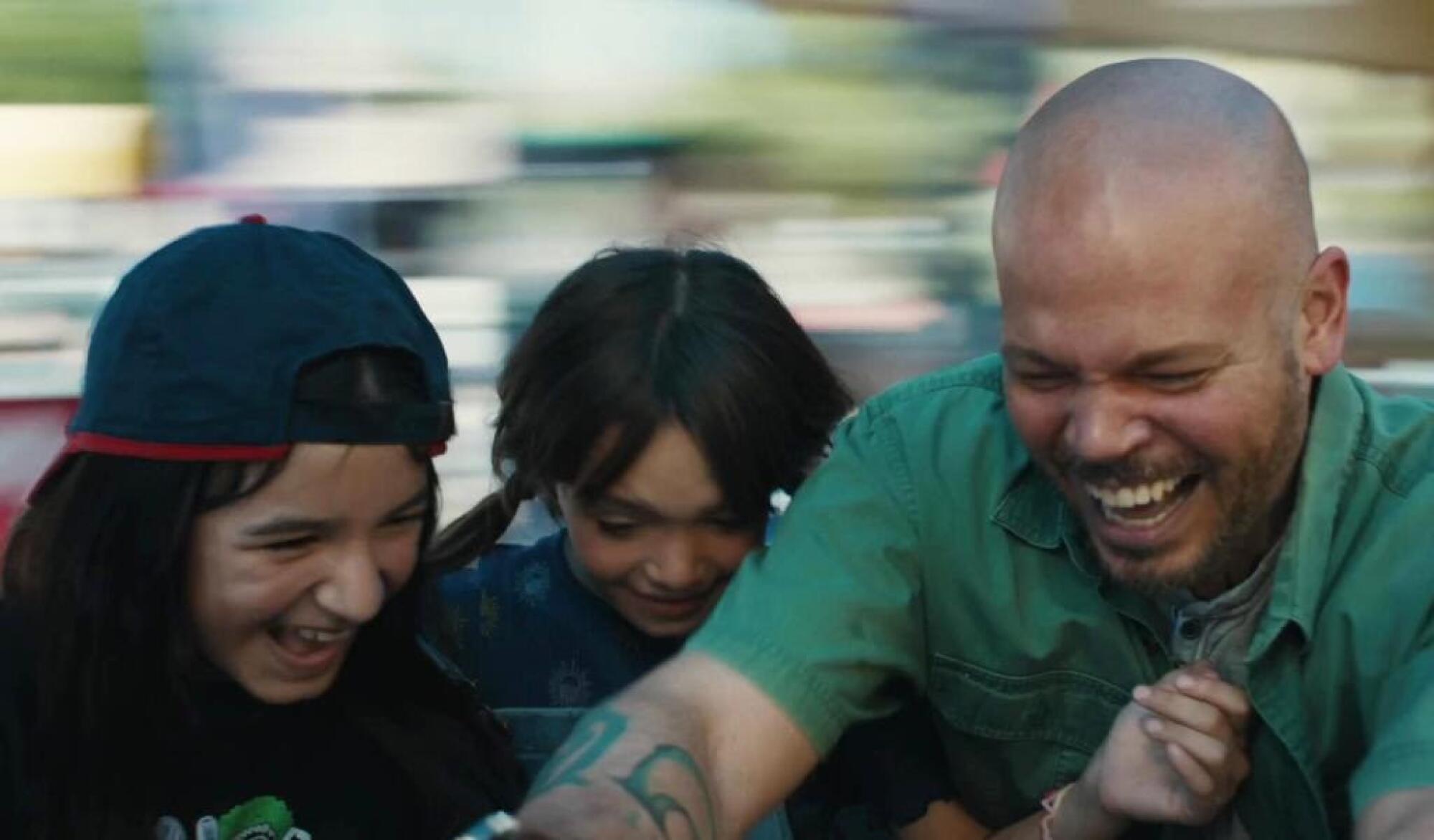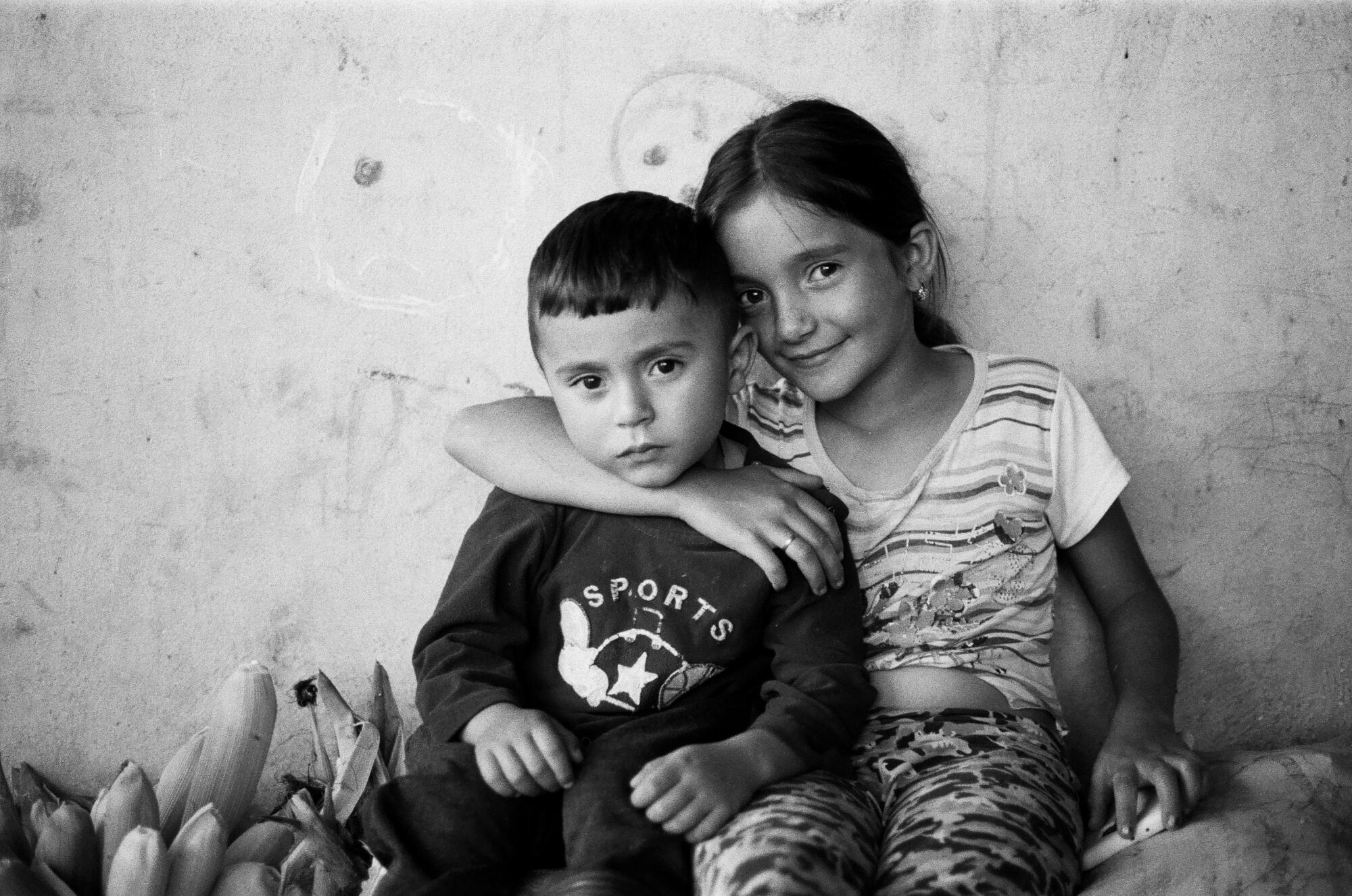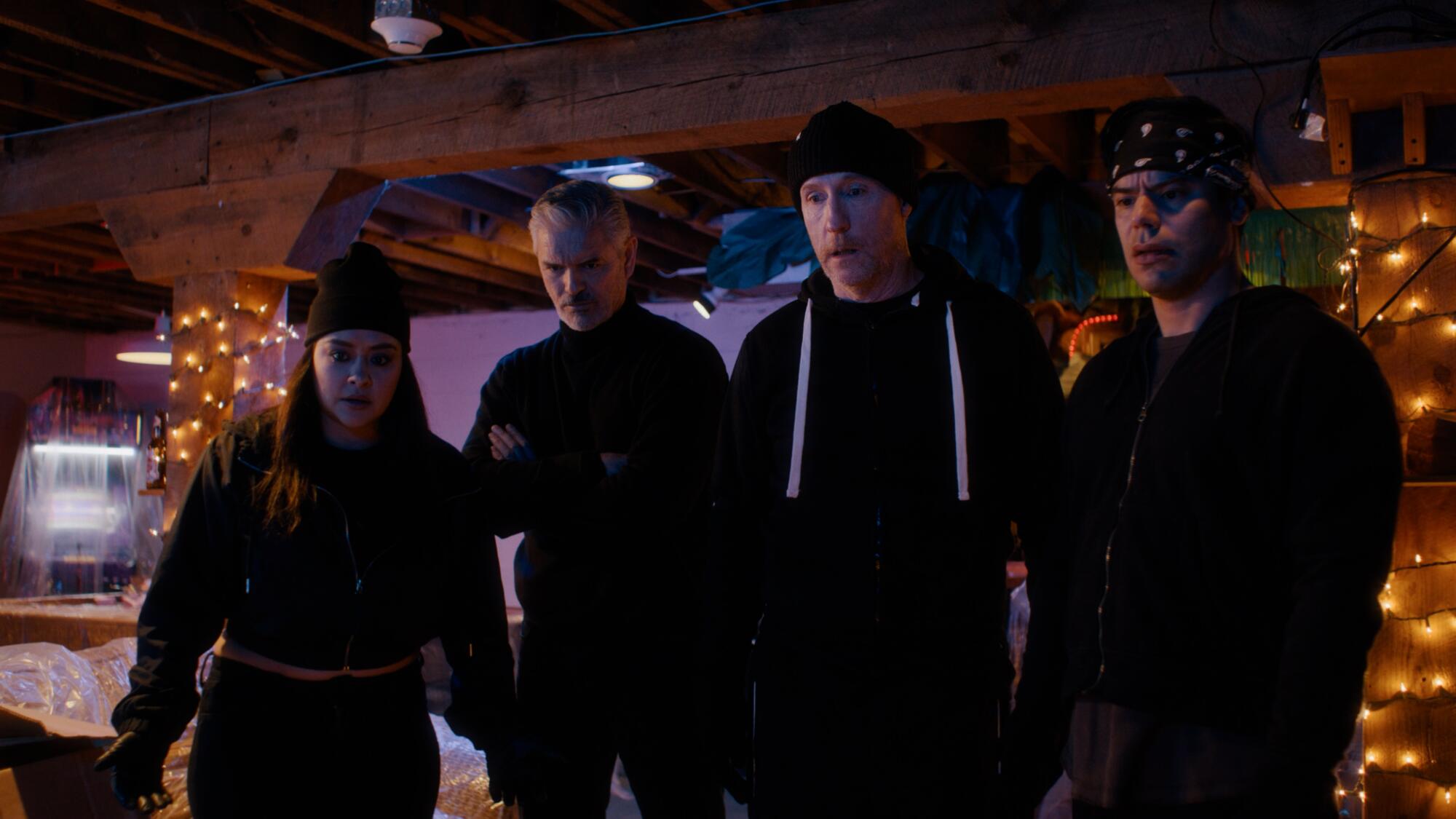
- Share via
The Los Angeles Latino International Film Festival kicks off May 29, featuring five days of programming that will pay tribute to women filmmakers and below-the-line talent.
New ventures this year include a film market — a curated set of movies that are available for distribution — and a venue expansion into downtown’s Regal L.A. Live to accompany programming at the TCL Chinese Theatre in Hollywood.
Erika Sabel Flores, vice president of programs and innovation at the Latino Film Institute, the nonprofit organization that presents LALIFF, said a continual goal for the festival is to represent all the contours of what it means to be Latinx.
“You can come to our festival and see yourself no matter who you are,” she said.

This year’s opener is “In the Summers,” a semiautobiographical drama directed by Alessandra Lacorazza Samudio — her feature debut — that was awarded the Grand Jury Prize in the U.S. dramatic competition at the 2024 Sundance Film Festival. The movie follows two sisters throughout various stages of their lives as they navigate summer trips to visit their father in Las Cruces, N.M. The film also marks the feature acting debut of rap musician René Pérez Joglar, better known as Residente.
LALIFF also will host screenings of documentaries “Prodigal Daughter” and “Paper Butterfly,” comedy “Sisters” and popcorn flick “The Unexpecteds.”
The closing film, “Grassland,” is a tense drama that follows a single Latina mother at risk of losing her illegal marijuana business when her son befriends new neighbors. It explores the “failures of the criminal justice system.”
This interview has been edited for length and clarity.
What was the vision for this year’s programming at the festival? What feelings did you want your viewers to come away with?
Erika Sabel Flores: One of the things that was important for us was to really put women at the front. There are just a lot of women that we have been working with through all of our different programs to empower. The other thing that we try to do is highlight the whole breadth of the Latino experience. We understand that better than anyone — that being Latino doesn’t mean that we all have the same thing to say or that we have the same perspective.
A good portion of the feature films — and also the short films — contain representations of the LGBTQ+ community and many are also directed by women. How did you want the festival to continue shining a light on communities and filmmakers who aren’t as often represented in the media?
It’s a huge part of what we do. Approximately 50% are female-directed films. We also have Afro Latino-directed stories, we have Indigenous stories and LGBTQ+ representation. It’s really a commitment, and it’s not just one type of story.

If you go to a festival that is not Latino-focused, it’s likely that the type of programming you’ll see is very specific because, to them, that’s what is Latino, right? And for us, it’s really never thinking that way. Everything is Latino. We’ve had stories where somebody could say, “That’s not really a Latino film,” and it’s like, if a Latino made it, it is a Latino film.
Something that’s also new this year is the film market. How did that come to be, and why is it so important to get these films sold?
We’ve been thinking about this forever. So that’s why I’m so excited because we finally were able to make it happen. As an organization, we have the ability to advocate and highlight work and make those arguments that I’m telling you right now: It doesn’t have to necessarily be only a border crossing story. We have the opportunity to use our platform to highlight work that we think is important, different and interesting.
We have a curated catalog of films that we determined are commercially viable. And we’re going to present them to sales agents and potential acquisition and distribution people. The end [goal] is distribution, right? So that is why we wanted to add that piece to really complete the work we’re doing over here.

What conversations have you had with the filmmakers who are going to premiere their projects at the festival?
That’s one of the really fulfilling parts of the job. We really can discover voices and put forward people who could have been falling through the cracks or may not have had an opportunity before.
Some people just got their first short film ever in a festival. Some people who were with us for a couple of years with shorts are now with us for their first feature. Some people who did really well at other festivals now have a chance to come be part of a specifically Latino-focused festival. So I think that part is very rewarding — having all of those conversations about what the festival means to the community.
The Los Angeles Times is a premier sponsor of the Los Angeles Latino International Film Festival.
More to Read
The Latinx experience chronicled
Get the Latinx Files newsletter for stories that capture the multitudes within our communities.
You may occasionally receive promotional content from the Los Angeles Times.







